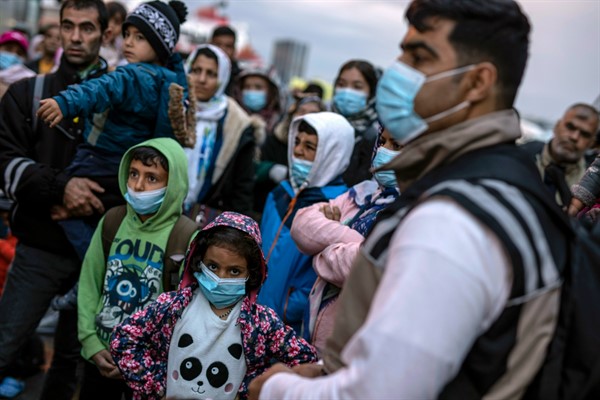COVID-19 is a global menace, but its impact falls heaviest on the most vulnerable. In the world’s poorest states, the pandemic-induced recession threatens to throw decades of development into reverse and place hundreds of millions in desperate circumstances. Last week, the United Nations released its Global Humanitarian Overview, outlining the additional devastation in store if the multilateral system fails to close the yawning gap between urgent humanitarian needs and funds available to meet them. In other words, the list of global challenges the incoming Biden administration will face just got longer.
For the world’s poorest nations, the main threat is not just the coronavirus itself, but the punishing knock-on effects of lockdowns and other preventive measures taken to combat it. Around the world, a sharp recession has caused unemployment to surge. Remittances have declined 14 percent, further reducing household incomes. Food prices have spiked, raising the specter of more famines that, until a few years ago, were thought to have been consigned to history. Schools have closed, and many students may never return. Children are no longer getting immunized, leaving them at the mercy of disease outbreaks. Women and girls are facing reversals in trends toward equality and, even more disquieting, falling victim to gender-based violence.
Extreme poverty has risen for the first time in 22 years, and 150 million more people may well fall into that category in the coming year. Life expectancy is declining. Some 270 million people are at risk of starvation. Hundreds of millions have lost jobs, and global labor income has declined 10 percent. The death toll from AIDS, tuberculosis and malaria is on track to double. Mental health is at risk everywhere. Such trends threaten progress on virtually all measures of sustainable development. They are also exacerbating a worldwide humanitarian emergency.

